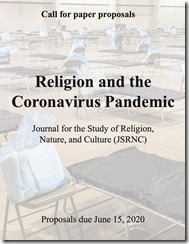The International Society for the Sociology of Religion will meet online this year from 12-15 July. We are seeking papers in French or English on the role of social theory in the sociological study of religion. The deadline for submission is Feb 28th.
Click HERE for more information about the conference and a link to the submission page.
Religion And Social Theory // Religion Et Théorie Sociale
Organizers:
- Jim Spickard – University of Redlands
- Titus Hjelm – University of Helsinki
Session Abstract:
The aim of this session is to stimulate debate about theoretical ideas that have a bearing on the sociological study of religion.We welcome contributions from researchers applying both familiar and less familiar traditions of social theory to religious topics. We especially invite papers that connect sociological theories of religion to the social, cultural, and/or historical contexts in which they arise and/or are used. Such papers might explore what such shaping has prevented sociologists from seeing about religious life or, on the contrary, what such shaping has enabled sociologists to understand that theories generated in other contexts has not. We also welcome papers on other aspects of the relationship between religion and social theory.
Résumé de la session:
Le but de cette session est de stimuler le débat sur les idées théoriques ayant un impact sur l’étude sociologique de la religion.Nous acceptons les propositions de chercheurs mobilisant des théories connues comme moins connues sur des faits religieux. Nous invitons en particulier les soumissions qui font le lien entre les théories sociologiques de la religion et les contextes sociaux, culturels et historiques dans lesquels elles surgissent ou sont utilisées. Les propositions peuvent par exemple mettre en lumière les différentes facettes ou dimensions de la vie religieuse que ces différents usages des théories ont obscurcit ou même empêché de voir les sociologues de voir ou, à rebours, ce que ces usages ont permis de voir que d’autres théories n’ont pas vu. Nous accueillons également des propositions sur d’autres aspects de la relation entre théorie sociologique et religion.



